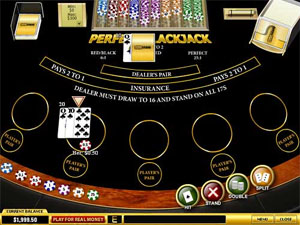Strategies for Playing Aces in Blackjack
When it comes to blackjack cards, the majority of players have a somewhat contentious relationship with the Ace. Being dealt an Ace is a joyous event, but the dealer showing one is met with disappointment. But love it or hate it, the Ace is a blackjack player's best friend.
Obviously when the dealer is showing an Ace, we're often put at an immediate disadvantage because the dealer rarely loses when he/she shows an Ace. In terms of probability, the dealer showing an Ace generally only busts a mere 16.9% of the time (assuming he/she doesn't hold blackjack from the outset). For the remainder of the time he/she will hold hands valued at between 17 and 20 with similar frequencies of 18.9% and hold a non-blackjack hand valued at 21 7.5% of the time. These stats show the obvious advantage a dealer has when holding an Ace, which of course puts you as a player at a disadvantage.
Furthermore, according to leading blackjack authors, when the dealer holds an Ace, the house advantage increases to a considerable 36% over the basic strategy blackjack player which means an average return of just $64 for every $100 bet when playing against the dealers hand.
So what should you do when you're faced with this situation? You know the dealer's odds of busting are small and more often than not he/she will finish with a good hand. The best thing to do in this situation is to play your hand to minimise losses. This can be done by employing the following strategies:
- If you're playing a blackjack variant that allows surrender and you are holding a hard 16, this is one of the only times you should exercise the surrender option and forfeit half of your wager. If the rules dictate that the dealer hits on hard 17, then consider surrendering a hard 15 hand too.
- Avoid doubling down unless you have a two card 11 in a single or double deck game, and in 6 to 8 deck games where the rules allow the dealer to hit on hard 17.
- Avoid splitting pairs except Aces and 8's (you know the rule -you'll lose far less in the long run)
- Never stand when holding a soft hand valued at 13 to 18, always hit against the dealer's Ace with the aim of obtaining a hand valued of hard 17 to 21 or a soft 19 to 21.
Now that we've discussed the advantages of the Ace for the house, and how to play against it, let's look at the advantages that these cards can afford you. Of course, when an Ace is dealt alongside a 10 value card with a face for blackjack we all rejoice because as long as the dealer isn't holding blackjack you'll receive a great payout.
To make the most of your advantage when an Ace is dealt to you, play accordingly:
- Avoid all games with payouts lower than 3:2 for blackjack or the value of the Ace will be diminished.
- If your initial two cards contain an Ace your hand is said to be a soft hand. Regardless of the number of decks the game is played on (up to eight) or the game's rules always double down on your soft Ace values for 13 to 18 when the dealer's upcard is valued at 5 or 6.
- If you are dealt blackjack and the dealer is showing an Ace, do not take even money as it will only diminish the value of your blackjack hand.
- Always split Aces
According to the statistics, when an Ace is dealt in a player's initial hand, the average return equates to approximately $152 for every $100 wagered (when playing games with favourable rules according to sound blackjack strategy of course). So while the Ace may be good for the house, it can be even more valuable for you as a player, and it's well worth remembering to play it to gain the maximum returns.


